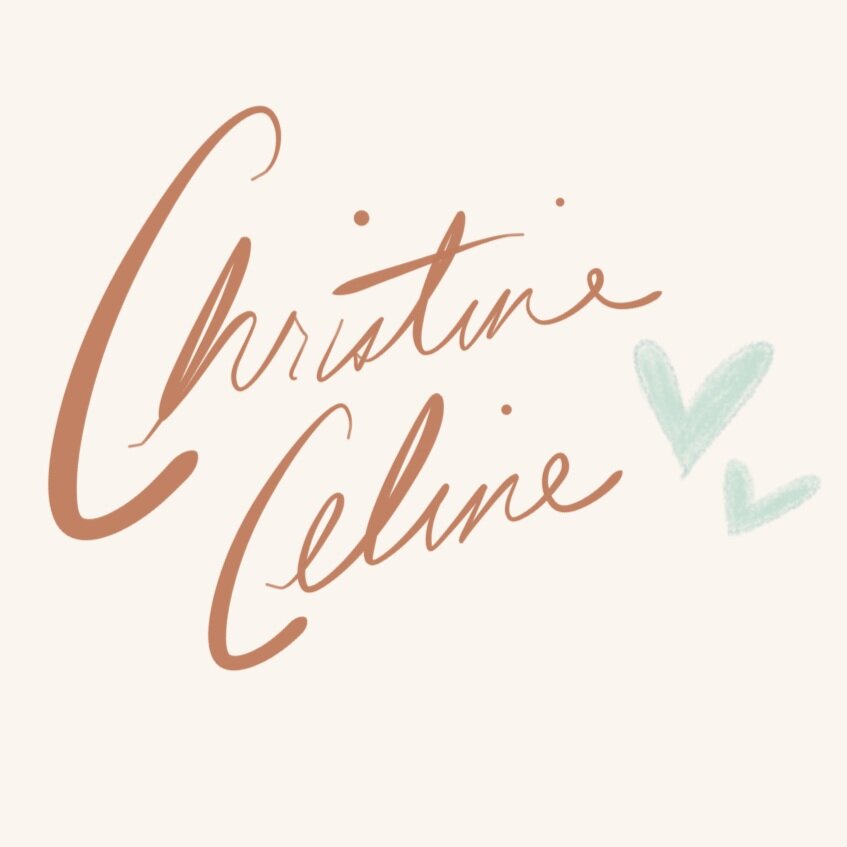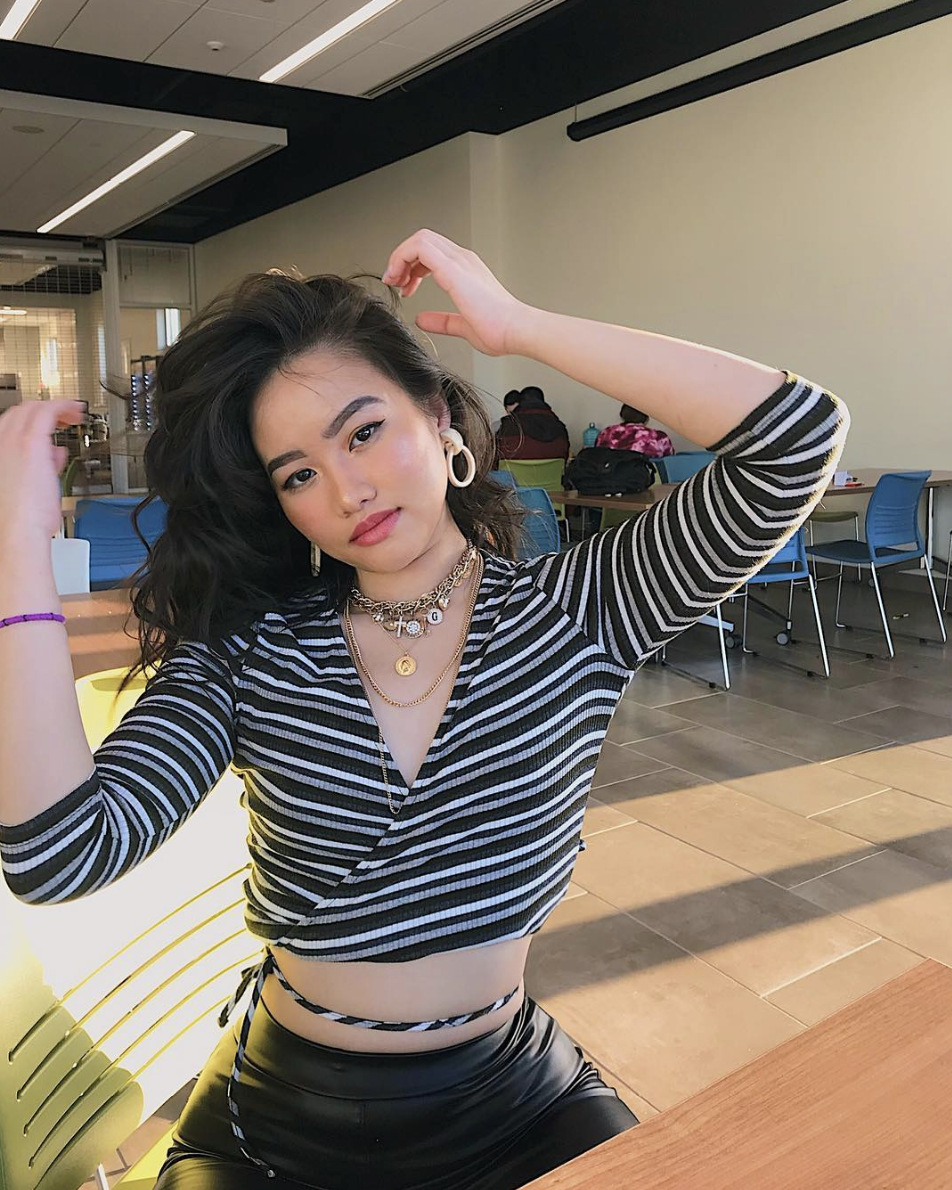AAPI Heritage Month Q&A Series: Nhu Tran
AAPI Heritage Month commemorates Asian Americans and Pacific Islanders that have contributed to America’s rich history and success. Growing up as an Asian American/Pacific Islander can be considered a collective experience that can impact each an every one of us in a variety of ways. Our cultural identity shapes a facet of who we are and I am happy to be featuring a variety of strong voices that will share their experience as an Asian American/Pacific Islander in America. I hope that this series helps you connect with your own heritage and reminds you to be proud of where you come from!
I’m so excited to share the experience of Nhu Tran today! I’m so lucky to have met her at an event recently through some mutual friends. She’s so down-to-earth, genuine and kind. I absolutely love Nhu and her zest for life! She’s extremely well spoken and I admire her spirit. You’ll definitely catch us thrifting sometime soon on YouTube or maybe even crocheting?
Q: What ethnicity are you?
I am Vietnamese.
Q: Do you speak your language?
Yes I do! I actually speak, write and read fluently.
Q: Were you always proud of your heritage or did you initially reject it?
I wasn’t always proud of my heritage. Moving to the United States when I was 9 was a very big culture shock and I feel like I spent a good amount of my young teenage life rejecting my heritage. It was important to me that I did not stand out and that I blended in with all of my peers because I felt like being different is looked down upon. It was definitely difficult trying to navigate through school and developing a social life outside of school because my school did not have many students that are from the same background as me. Therefore, making friends was definitely difficult growing up.
Q: When did you being to truly embrace your heritage and why?
I truly embraced my heritage when I was in my junior/senior year of high school. I feel like I stopped caring about what others thought of me and I soon became very proud of where I came from. I always want to tell people about my culture and teach them about the beautiful place that I got to grow up in. I LOVE being a Vietnamese woman and I try to embrace every part of it wherever I go. I want to make sure that kids are being taught at a young age to embrace where they came from and to not be ashamed of it or feel like they are pressured to blend in with their peers.
Q: What do you consider to be the best parts of your heritage and culture?
The best part of my culture has got to be the people and the food. I grew up in Vietnam and I try to visit as often as I can. The people you meet in Vietnam will be some of the most welcoming people you’ll ever meet. Everyone there is so proud to be Vietnamese and they speak with such enthusiasm and excitement about the beautiful country. Oh my goodness! Do not get me started on the food. Vietnamese street food will be some of the best food you will ever try. Jasmine rice, Pho, Bun rieu; you can never go wrong with Vietnamese food.
Q: What was the first experience where you felt that demarcation of being a minority/different?
The first experience where I felt that demarcation of being a minority was when I brought food into school. One of my favorite Vietnamese dishes is bitter melon soup. However, anyone who’s not from Asia probably won’t be able to enjoy it as much as I do. Whenever I did actually bring Vietnamese food into school while my peers were having Capri Sun and Lunchables, they always gave me looks because they had never seen or tasted anything like it. In spite of this, I loved to tell my friends about the process of making the food and they were always interested in getting a bite of whatever I bring in.
Q: How did growing up as an Asian American/Pacific Islander affect your relationship with your parents?
Growing up Asian American was definitely difficult. Especially with the language barrier because I always have to speak Vietnamese whenever I’m home and I speak English in school. I also eat different food at home. My parents did not speak fluent English so they would always rely on me for any translation that needed to be done. It can definitely be stressful at times where you’re responsible for important documents. It’s always difficult balancing both cultures at once. I definitely learned a lot about the American culture and trying to balance both American and Vietnamese culture and embrace both in a healthy way.
Q: Did you have any Asian American/Pacific Islander role models growing up in media (i.e. movies/TV/music/books, etc.)? Did this affect your self-image?
Growing up, I definitely did not have any Asian American role models that I looked up to mostly because they aren’t often starring in films and shows. I’ve always disliked how Asian Americans are portrayed in a lot of big films because often times, we are seen as the brainiacs or the geeky ones. Seeing these portrayals growing up can definitely make you feel less superior to your peers. It did affect my self-image when I was younger, but as I grew up, I started to realize that I just have to be my own person and thrive in my own way and not necessarily by how the media portrays me to be.
Q: How do you feel about the rise of Asian Americans/Pacific Islanders in media today?
I feel really good about the rise of Asian Americans in media today. There’s a lot more personality that is being added to Asian American characters and this also allows equal opportunity for Asian Americans who are trying to make it into the entertainment industry. Big production companies are becoming more diverse in their casting choices!
Q: If you could give your younger self advice regarding growing up Asian American/Pacific Islander, what would it be?
If I could give my younger self advice regarding growing up Asian American, I would tell her not to be ashamed of anything you do. Embrace the differences and live with it. I’d tell her to stick with eating chicken nuggets with chopsticks and not to be afraid to tell your peers about your culture. Just try to embrace everything that you do with confidence and do not try to blend in because you’re absolute perfect just the way you are.
Q: How do you connect with your heritage and culture today?
I connect with my heritage and culture today by teaching people about my country and culture. I like to share the food and tell stories about my experiences. I find storytelling to be a very effective way of connecting with one’s heritage.
About Nhu Tran
Nhu is a first-year university student, currently studying Clinical Psychology and American Sign Language at Rowan University. She was born in Vietnam and moved to the United States when she was 9 years old. She speaks 4 languages and is an avid chess player as well as a cuber and all things nerdy. In her free time, you can catch her either playing chess, solving cubes or doing crafts with her hands. She is passionate about education and learning whatever she can. She is committed to helping to provide education for all children who are living in third-world countries hoping to provide them with the opportunities to have a brighter future.
Instagram: @nhugnu

